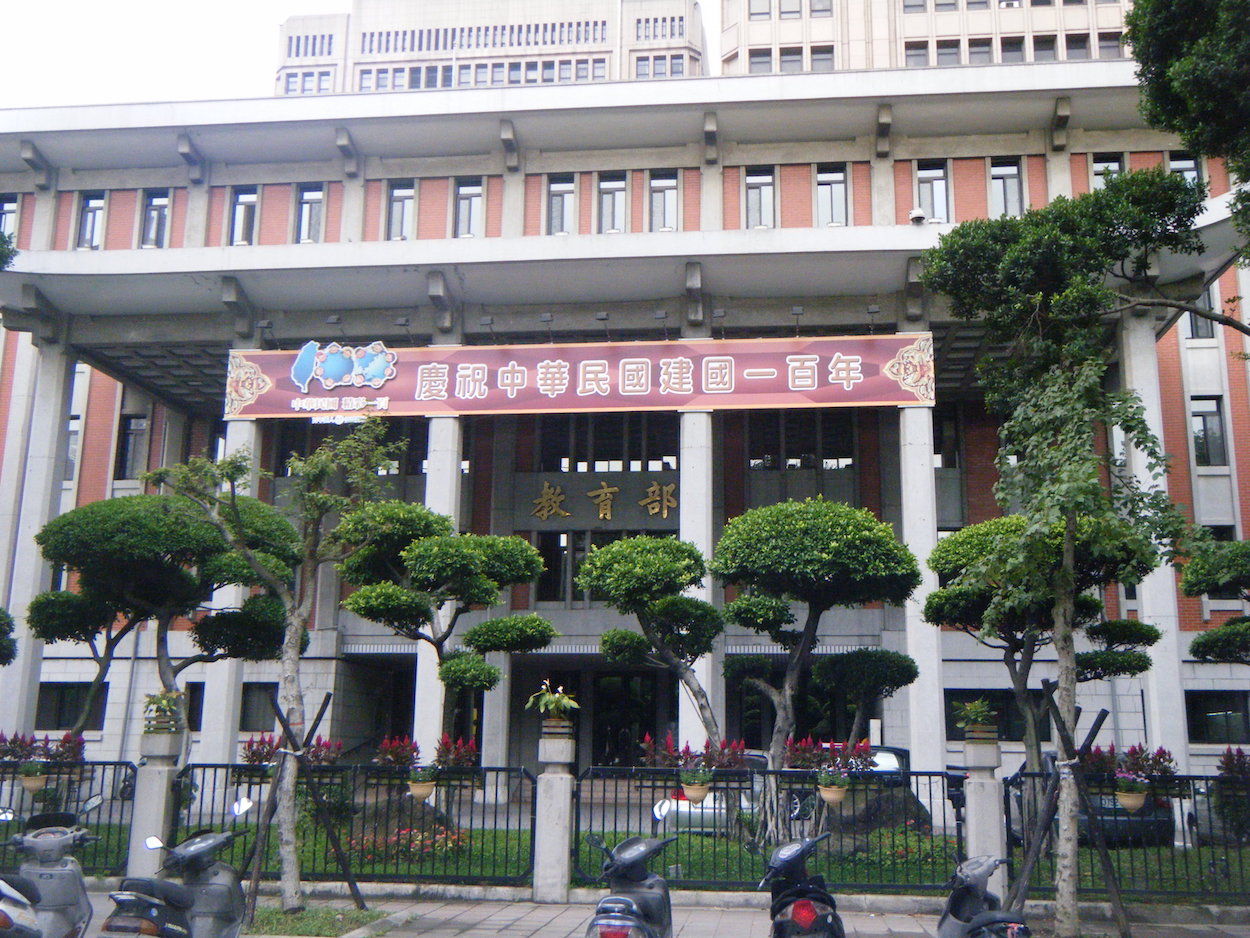by Brian Hioe
語言:
English
Photo Credit: Heeheemalu/WikiCommons/CC BY-SA 4.0
FOLLOWING CRITICISMS by academics, teachers, and others, the government appears to be shifting tack with plans to encourage bilingual education in Taiwan. The policies previously referred to as “Bilingual Nation 2030” have been rebranded as “Bilingual 2030” and the goal is no longer to make Taiwan into a bilingual nation by 2030. However, the new set of policies has still been criticized by educational groups such as the National Federation of Teachers Unions.
The “Bilingual Nation 2030” policies were aimed at boosting Taiwan’s international competitiveness by improving English education. Indeed, the “Bilingual Nation 2030” plan also originally included the notion of transitioning Taiwan towards a country in which the English language was an official language.
Yet there were warnings that this could prove short-sighted, such as regarding the need to duplicate all official paperwork and documents in English if English were to become an official language. The hurdles involved in this led this aspect of the original “Bilingual Nation 2030” plan to be dropped.
To this extent, while there were plans made to train 5,000 Taiwanese as English teachers, benchmarks for how to achieve making the next generation of Taiwanese students English fluent remained unclear. Other criticisms of the plan involved that the Tsai administration seemed to be prioritizing the teaching of English over local languages, disregarding Taiwan’s existing linguistic diversity, and that while English may be important, it is not as though every individual needs to learn English.
A petition by the Taiwan Languages and Literature Society in April of this year, gaining 1,700 signatories, including 400 educators that work at colleges and 400 elementary or middle school teachers, called instead for a “Multilingual Taiwan” that was instead “English friendly.” The petition encouraged the boosting of English education, but called for the Tsai administration to, on the other hand, drop attempts to pass Taiwan off as an English-language country.
 The Ministry of Education. Photo credit: 中華民國教育部/WikiCommons/CC BY-SA 3.0
The Ministry of Education. Photo credit: 中華民國教育部/WikiCommons/CC BY-SA 3.0
A more recent set of criticisms have followed after the shift to “Bilingual 2030,” however. The National Federation of Teachers Unions (NFTU) has called on the government to review its policies, with the view that while the name of the policy had changed, little else has changed. There was not any change regarding resources allocated to language education, educational materials, curricula, or guidelines and standards for teaching.
In a press conference and statement, the NFTU also pointed to difficulties teaching students about unfamiliar topics in a language they were unfamiliar with, sometimes by teachers who themselves were not fully competent in English, also emphasizing that linguistic policies disregard the gap between rural and urban contexts and the existing gaps in available education resources. This more broadly, then, gestures toward how Taiwan is not historically an English-speaking country and would face difficulties facilitating such a transition. The statement also emphasized the need for foreign teachers to teach English and that the quality of English teaching by foreign teachers is already very professional but indicated that it was an issue that there were few educational environments in which foreign teachers could work alongside Taiwanese colleagues to teach.
The government’s widely touted efforts to transition Taiwan towards an English bilingual country have already led many educational institutions, all the way from the elementary to college level, to rebrand as bilingual. This occurs at a time in which a declining birthrate means fewer students than ever, leading to recruitment drives from outside Taiwan, particularly from Southeast Asian countries.
More broadly, Taiwan saw an explosion in the number of colleges and universities from 28 in 1985 to 145 by 2005, resulting in students needing students in order to maintain adequate student enrollment to survive. Yet this has led to a number of unregulated institutions, something that has led to controversies when schools have sent students from Africa, Southeast Africa, or elsewhere to work in factories, even when they were promised internships or work-study programs in Taiwan.
Short-sighted efforts to promote English education in Taiwan could also lead to complications in the education system. With schools generally seeking to make up for declining enrollment numbers, it is possible that school administrations will increasingly tout bilingual education as a way to attract students and compete with other schools. Yet whether the education offered at such institutions genuinely allows for English competency in Taiwan proves another matter entirely.

